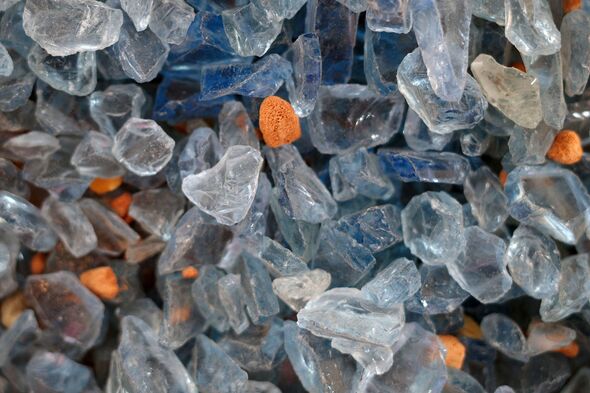'I'm a gardening expert – here's four mistakes that could cause havoc'
Outdoor specialists warn that numerous dubious online gardening 'hacks' could not only lead to expensive structural damage but may also attract pests.

You should be way of gardening hacks, according to experts.
With the arrival of summer, Brits nationwide will seize the rare chance to garden in the sunshine.
However, outdoor experts caution against five common mistakes that should be avoided at all costs - despite their virality online.
The gardening gurus at St. Modwen Homes assert that many of these questionable 'hacks', often found on TikTok, can result in costly structural damage and potentially attract pests.
Therefore, it's crucial to scrutinise everything you come across with a discerning eye.

READ MORE: Gardener shares two unlikely natural remedies to get rid of slugs for good [HACKS]
1. Gluing stones
Adding a splash of colour to your garden with glass stones may seem like a good idea, but experts have warned against gluing them down. Despite seeming like a practical solution, it can actually lead to significant problems.
"Glued stones can prevent proper water drainage, leading to water pooling or runoff issues, which can negatively affect plant growth and in some cases, more serious damage," the experts warned. "Plus, glued stones are permanent, making it difficult to rearrange or remove them if you ever want to change your garden’s design in the future."
On top of this, many small creatures - like frogs and insects - often use loose stones as shelter. So, gluing these down may 'disrupt the natural balance of your garden's ecosystem'.

READ MORE:
Woman collects garden snails and puts them on her face in unusual 'ritual' [BIZARRE]
Gardener shares 'absolute easiest' method to get rid of ivy in your garden [LIFE HACK:]
Dog trainer says mistake during training can 'affect' your pet's health [DOGS]
2. DIY lawn aerating shoes
Next, the experts turn their attention to a peculiar pair of shoes. In essence, these are nothing more than standard walking boots, albeit with spikes on the bottom.
While you can buy these bad boys online, various gardeners are making their own versions by drilling nails into wood and stomping all over the grass. Users generally believe the holes created will 'aerate' the soil, allowing more air and water to reach plant roots.
However, the gurus sadly disagree, claiming the spikes on many aerator shoes 'don't penetrate deeply enough to provide effective aeration'. They explained: "Achieving uniform coverage is [also] difficult, as the effectiveness depends on how evenly you walk across the lawn.
"Additionally, the spikes can damage the grass, particularly if used frequently or improperly, leading to patches of unhealthy or dead grass. This can ultimately do more harm than good to your lawn’s overall health."

3. Cardboard garden borders
According to experts, creating cardboard borders is another common blunder. While it may seem like the ideal solution for lining a flower bed or gravel patch without resorting to a shovel, this shortcut can apparently lead to several problems.
The gurus explained: "Are you renting a place and don’t want to disrupt the soil, or simply want to create a beautiful garden border without getting the shovel out? #GardenTok users have turned to using cardboard to line a flowerbed or gravel patch instead of digging a new one.
"Layers of cardboard and organic material can attract pests such as rodents and insects, which may damage your current landscape, and future plants."
Turns out, rats and mice especially love cardboard and are often drawn to it when nesting or sleeping. "Plus, young plants with delicate roots might struggle to penetrate the cardboard layer initially, slowing down their establishment and affecting their overall growth," the experts added.
4. Pallet decking
New decking can be seriously expensive, so it's no wonder gardeners are trying to make their own at home using old pallets. But surprise, surprise - experts once again say this one's a no-no, due to their 'low quality'.
"Pallets are often made from low-grade wood that is not treated for outdoor use, making them prone to rotting, warping, and splintering when exposed to the elements," they explained. "Furthermore, the wood used in pallets generally has a shorter lifespan compared to traditional decking materials."
If you thought it couldn't get any worse, the gurus also warn that pallet use can lead to dangerous structural weaknesses and potential decking collapse. This is largely because pallets are 'not designed to bear significant weight', unless they've been especially designed to do so.
They concluded: "This not only compromises safety, but also results in a less durable and less visually appealing outdoor space."
